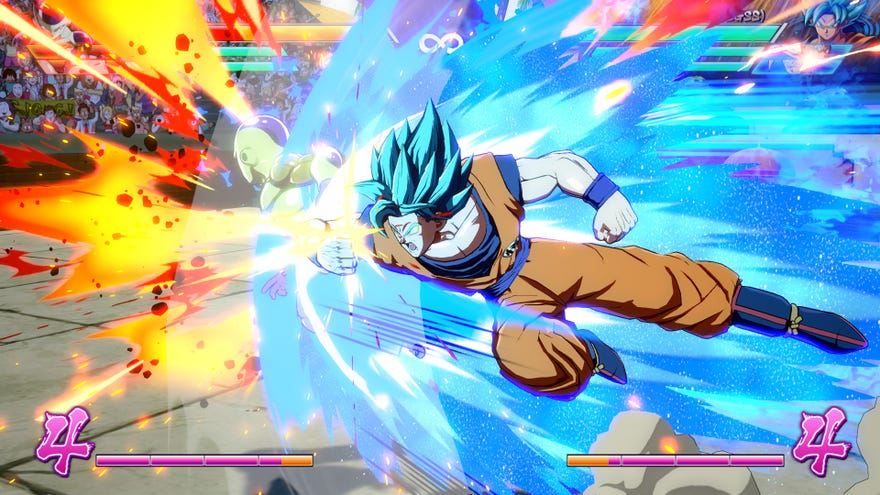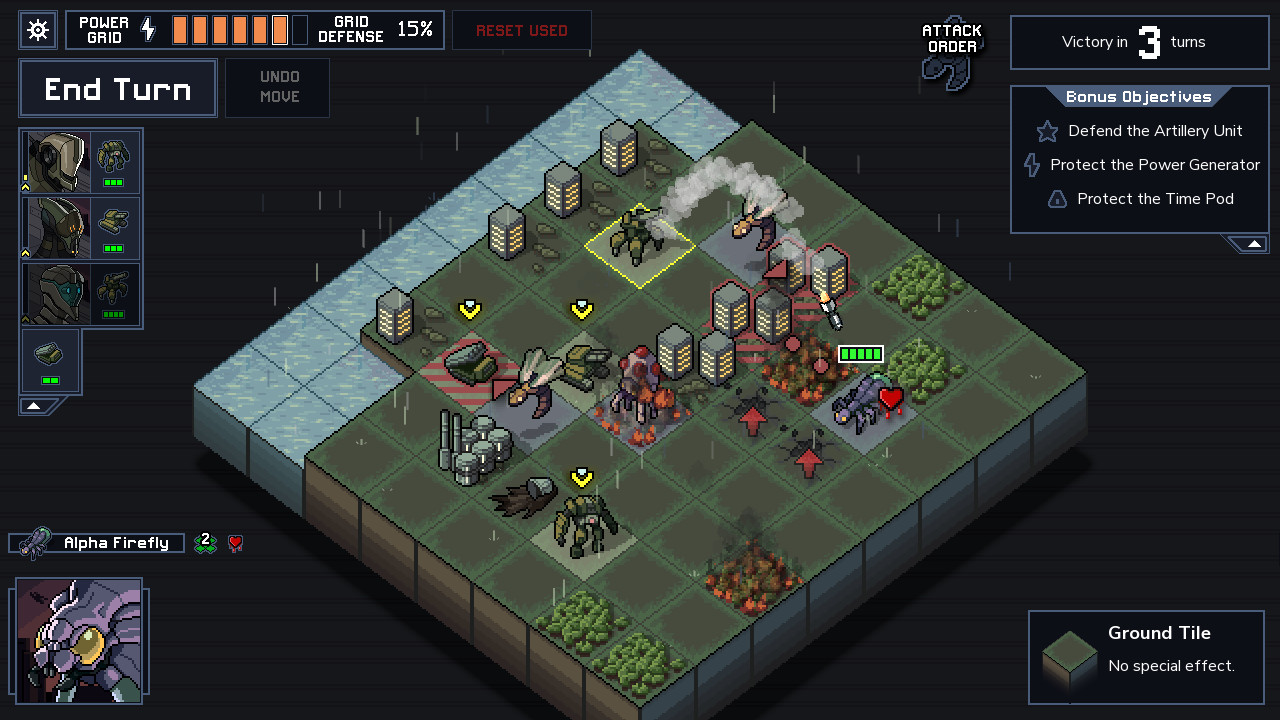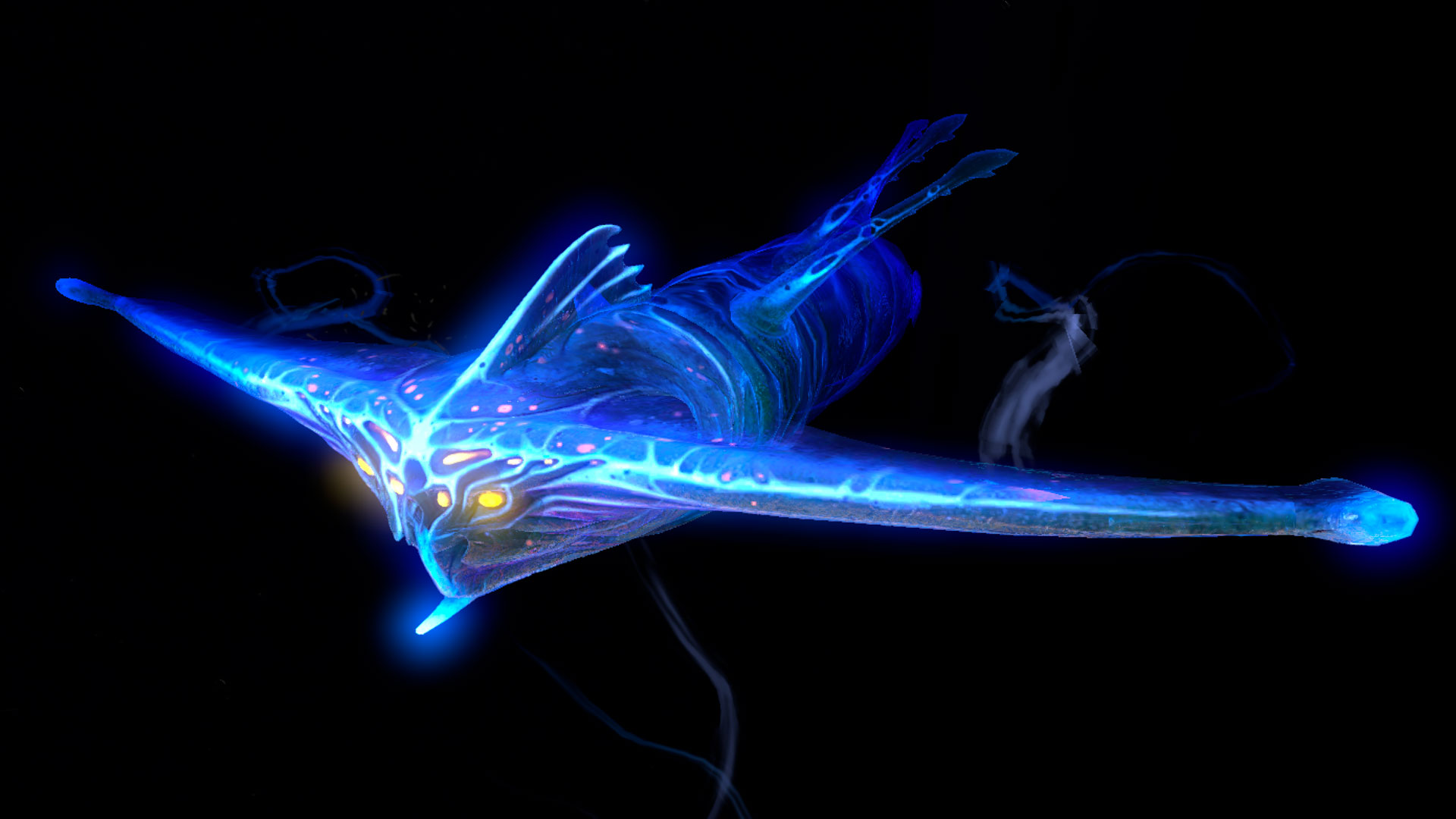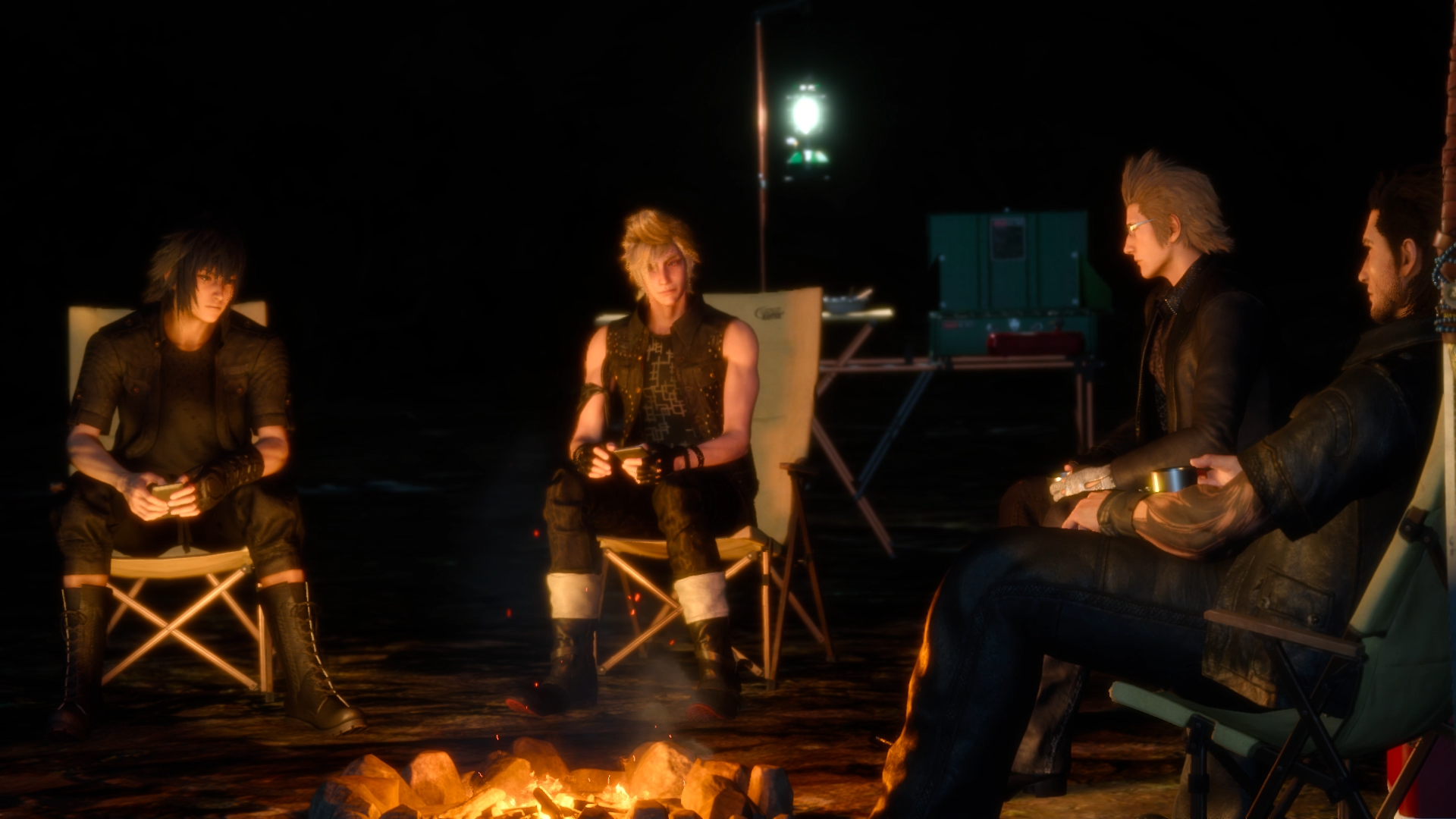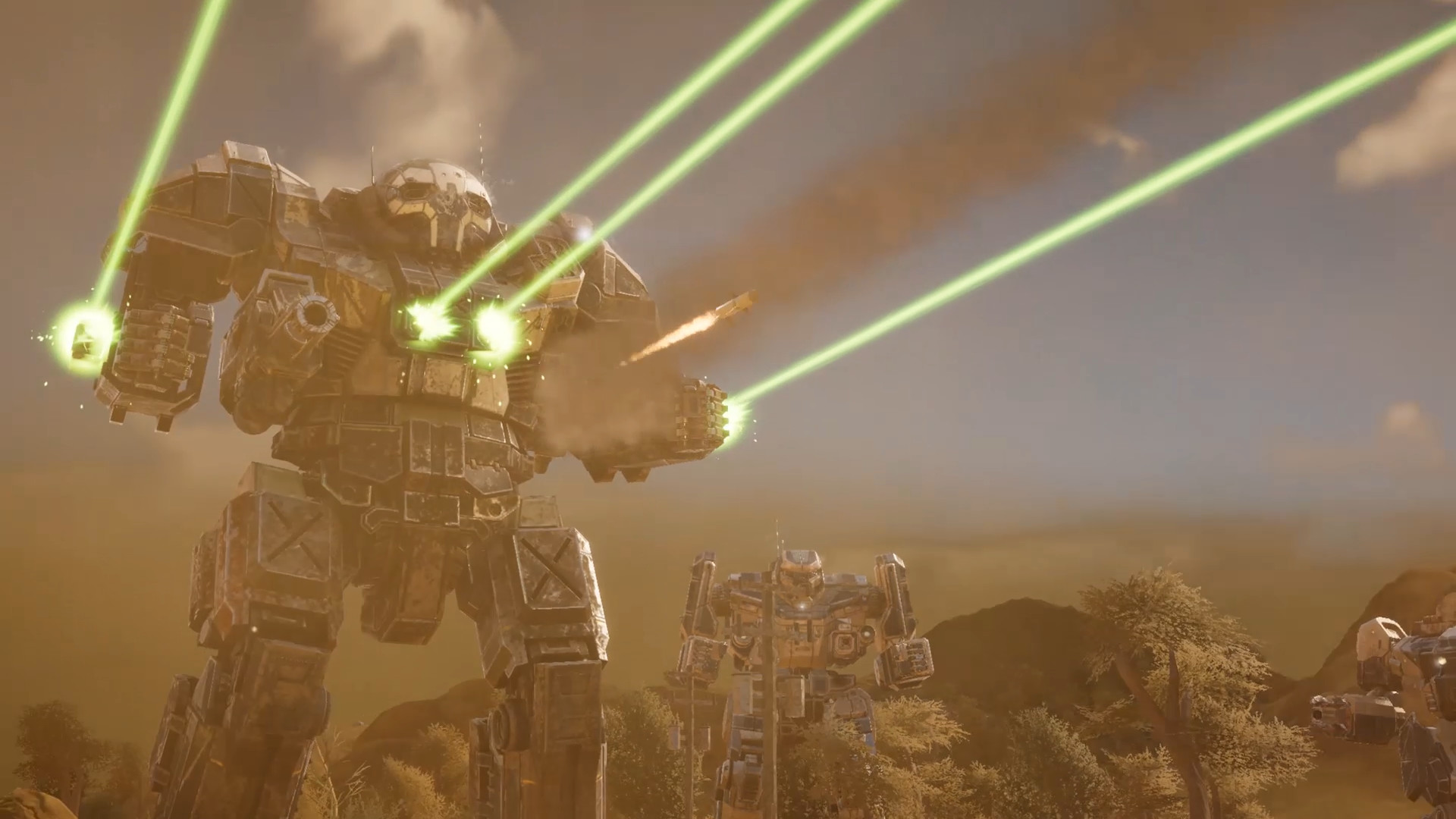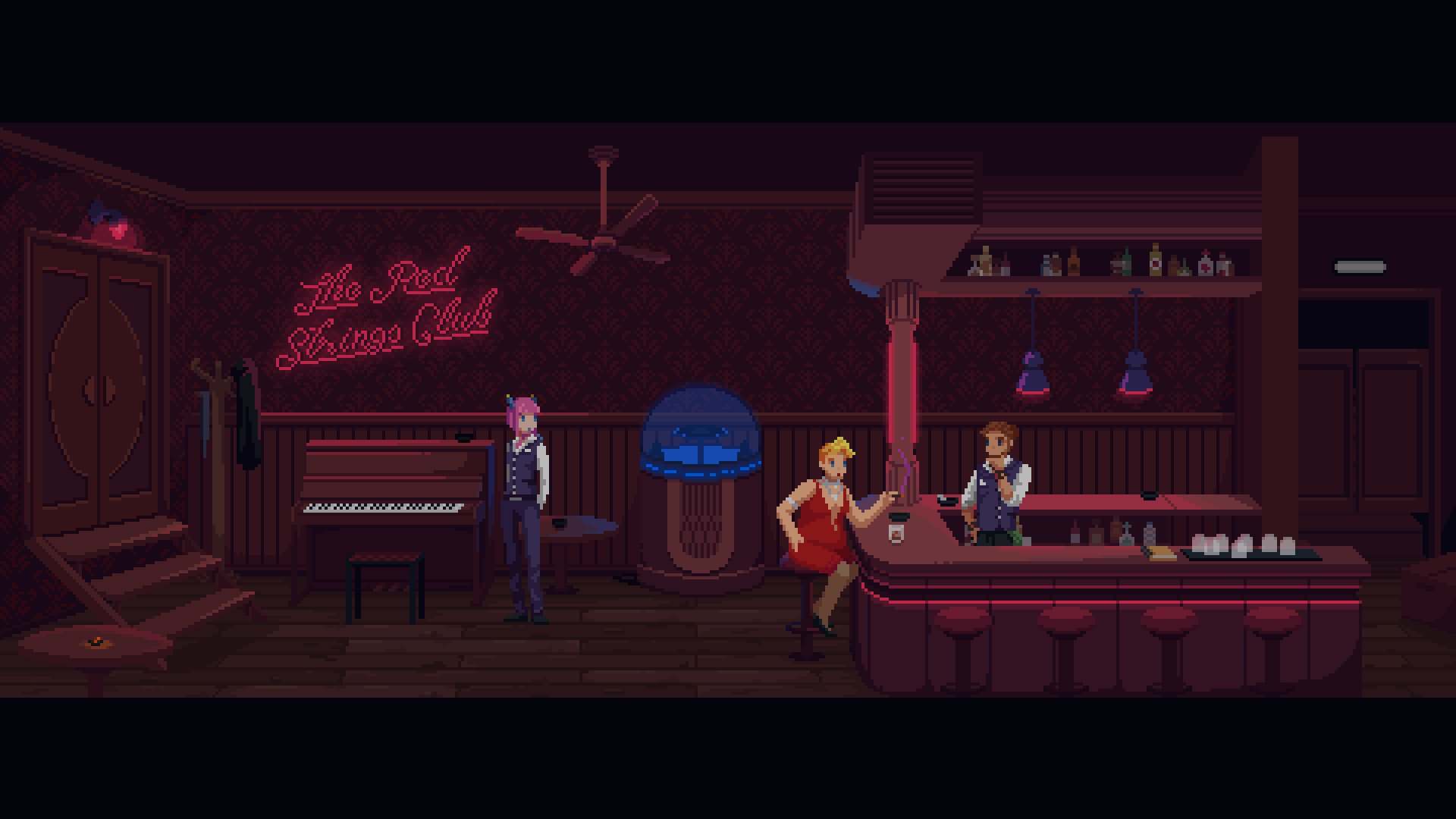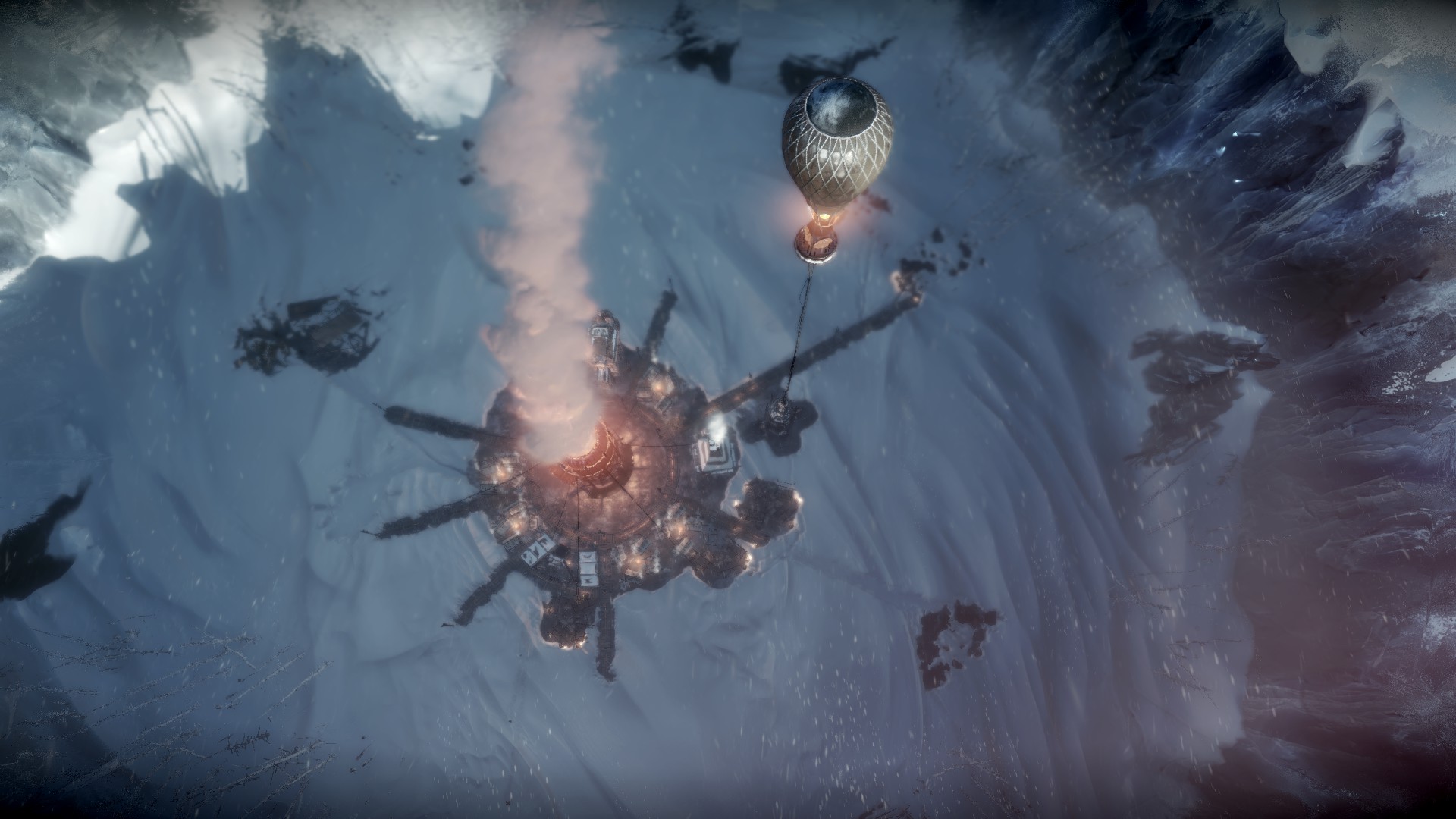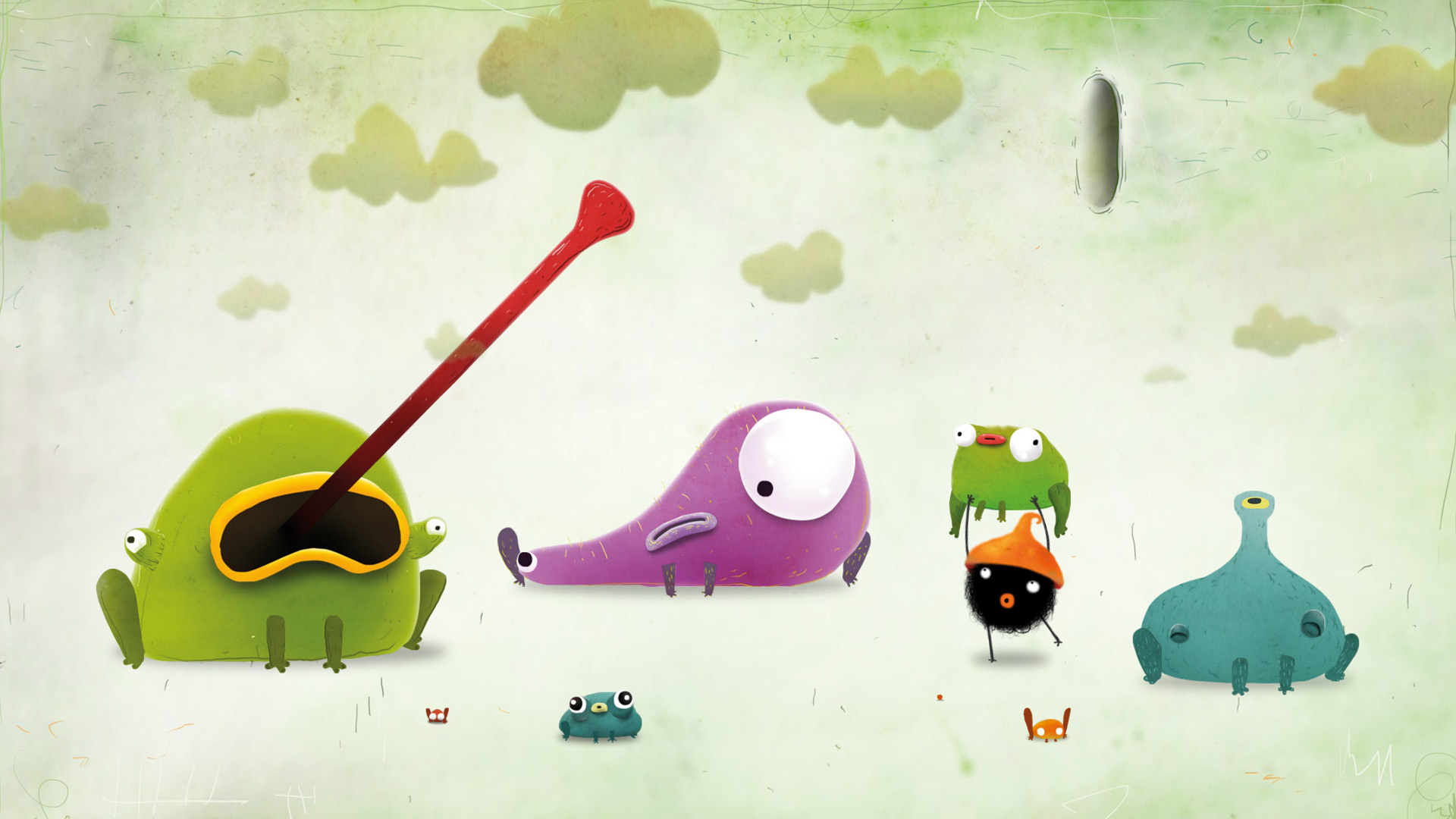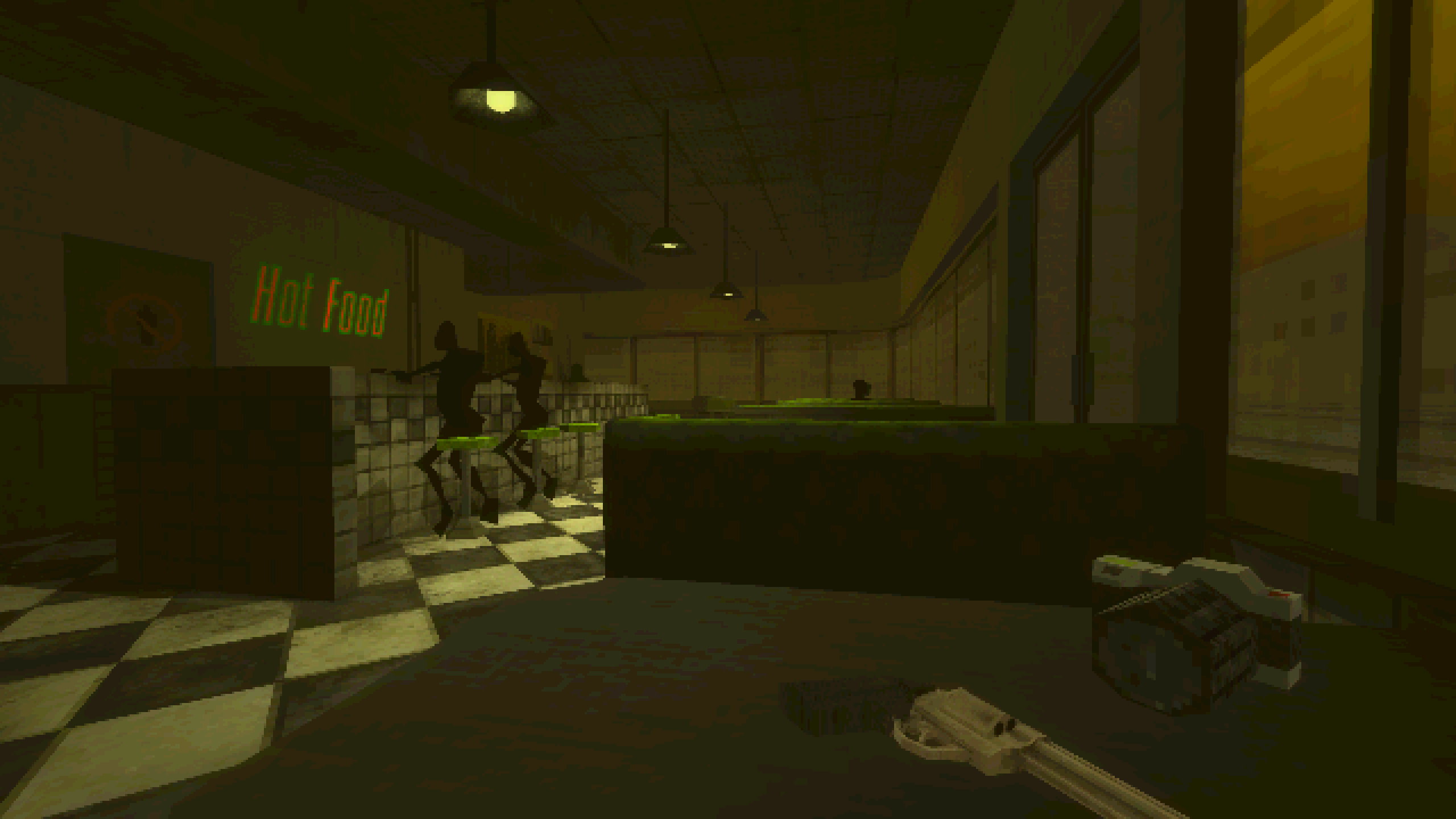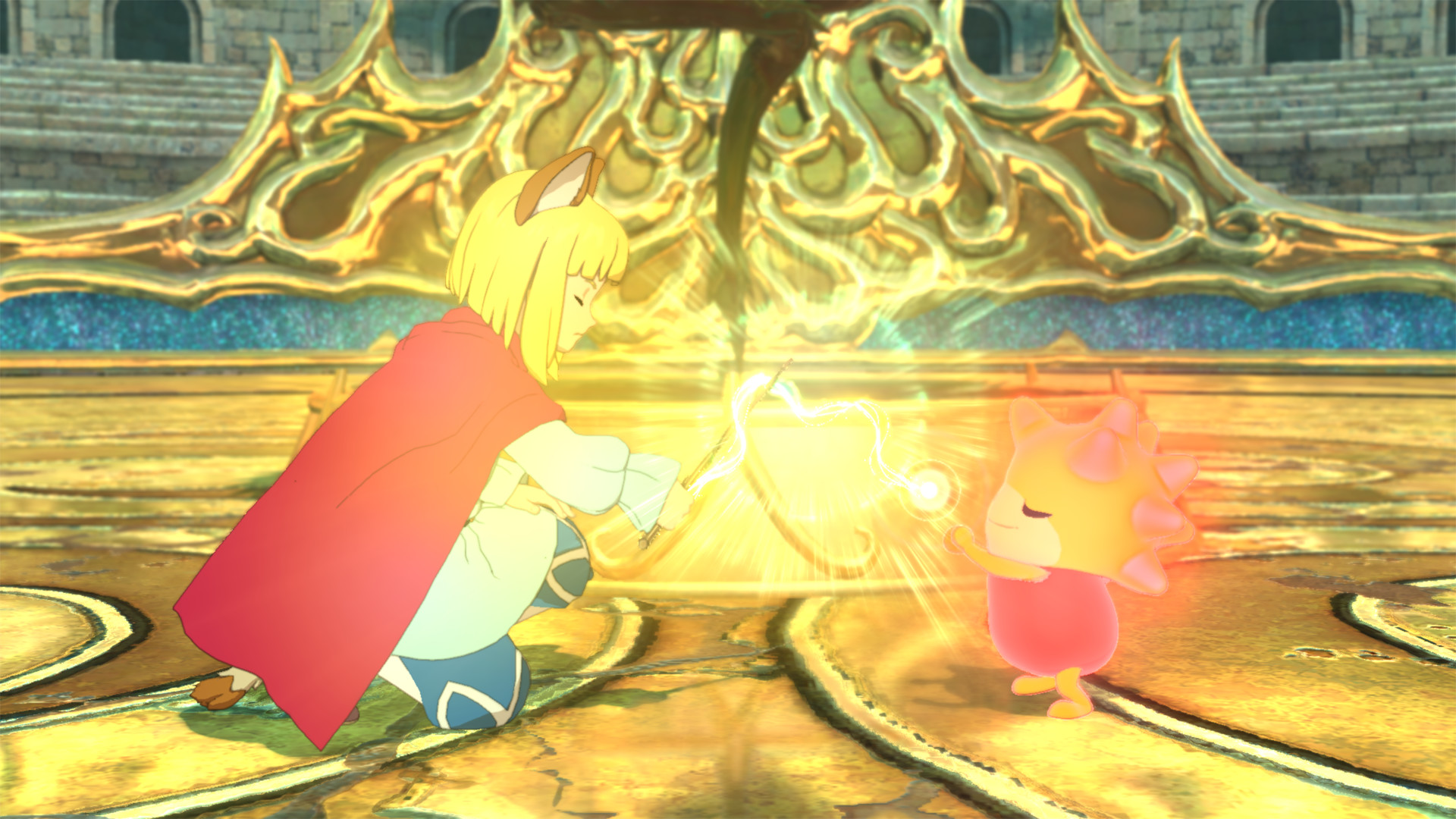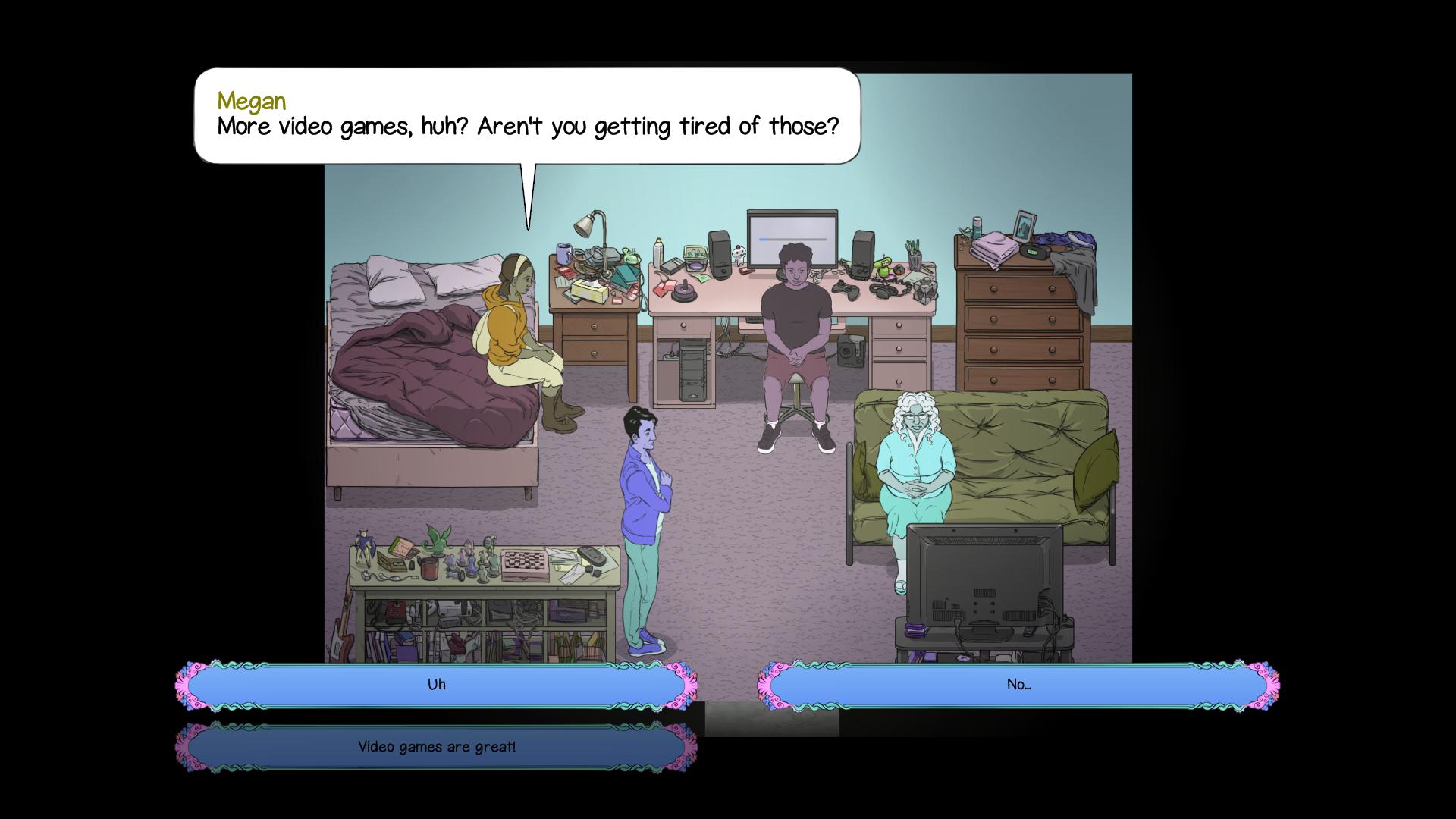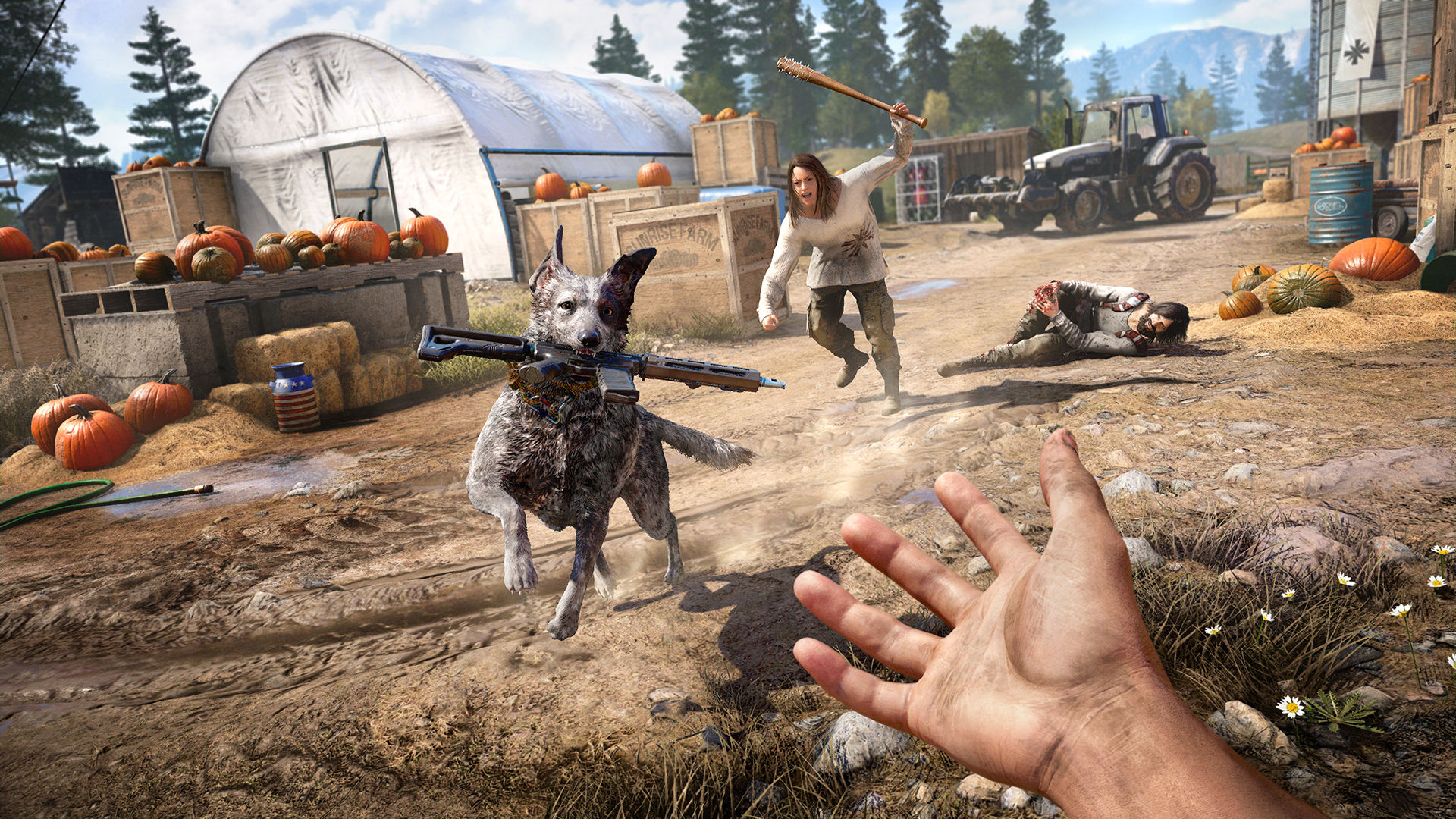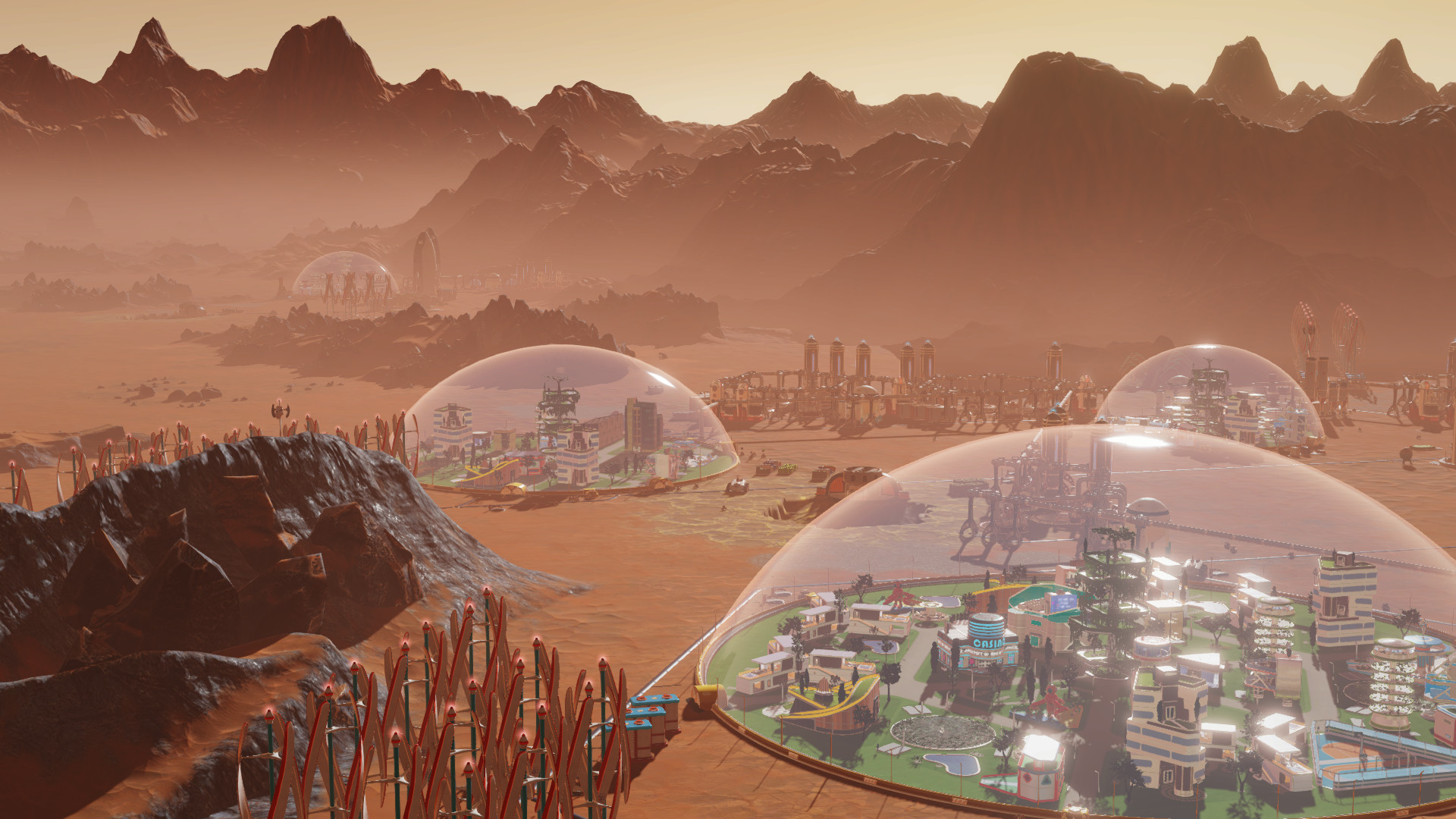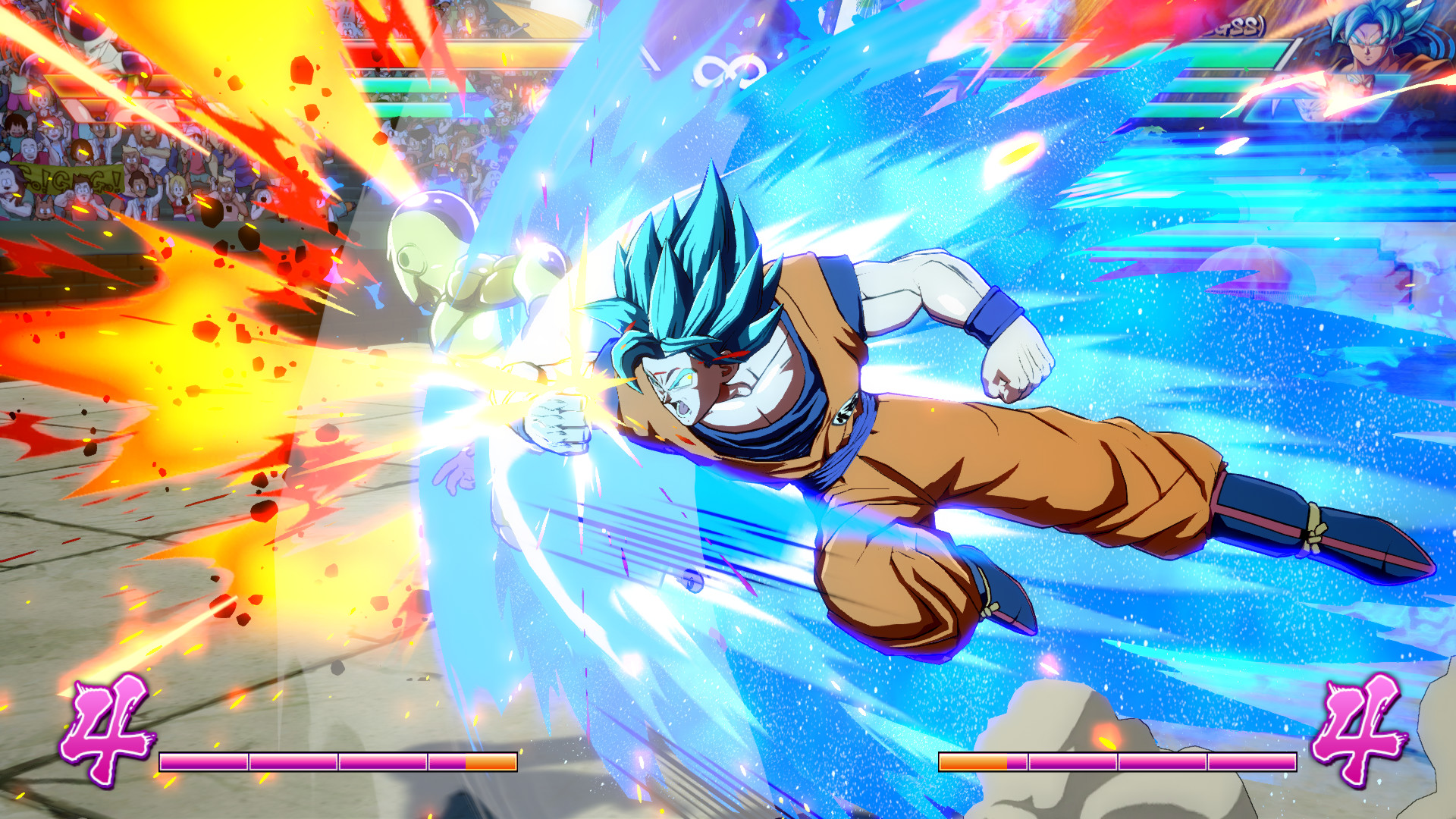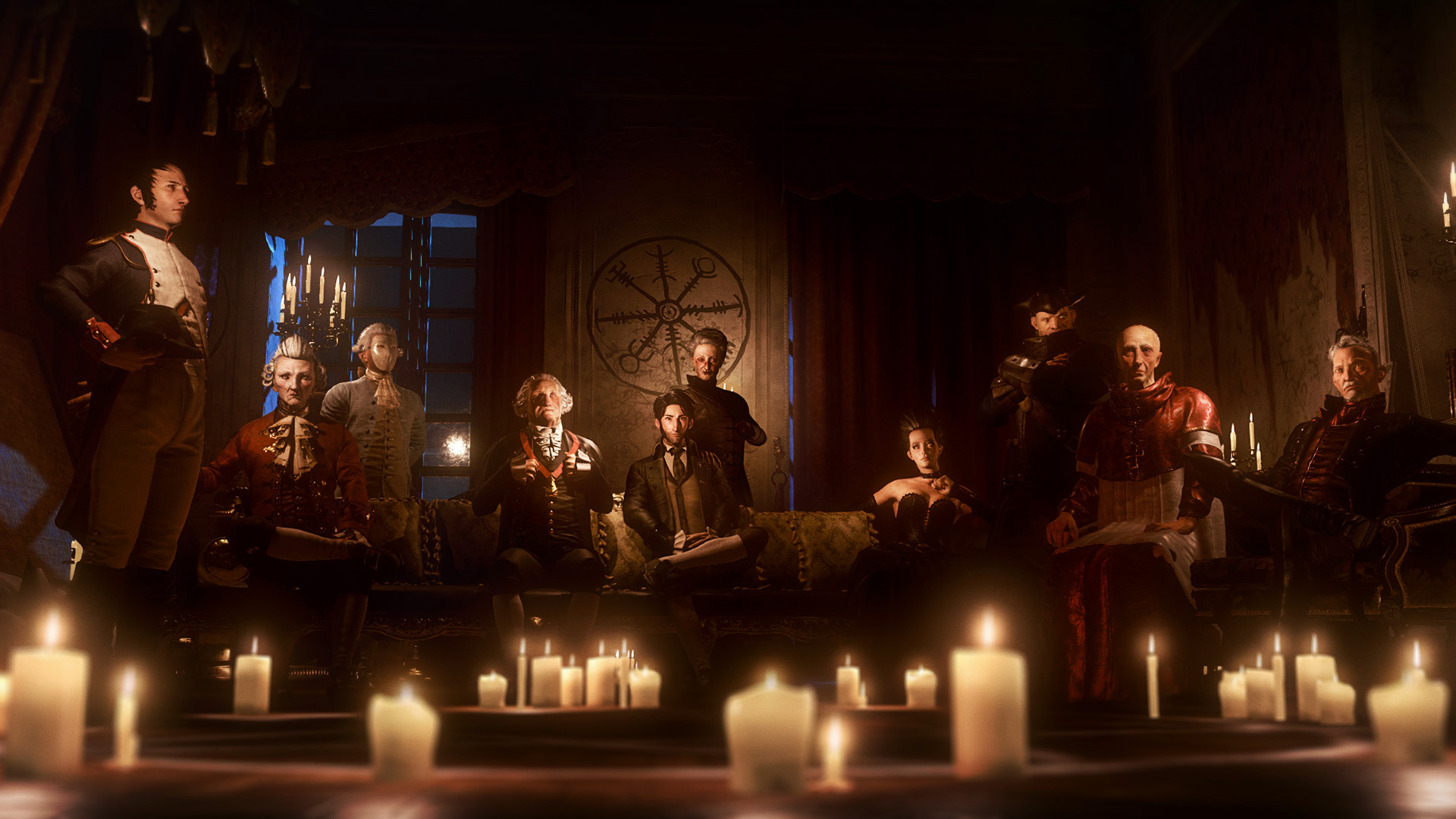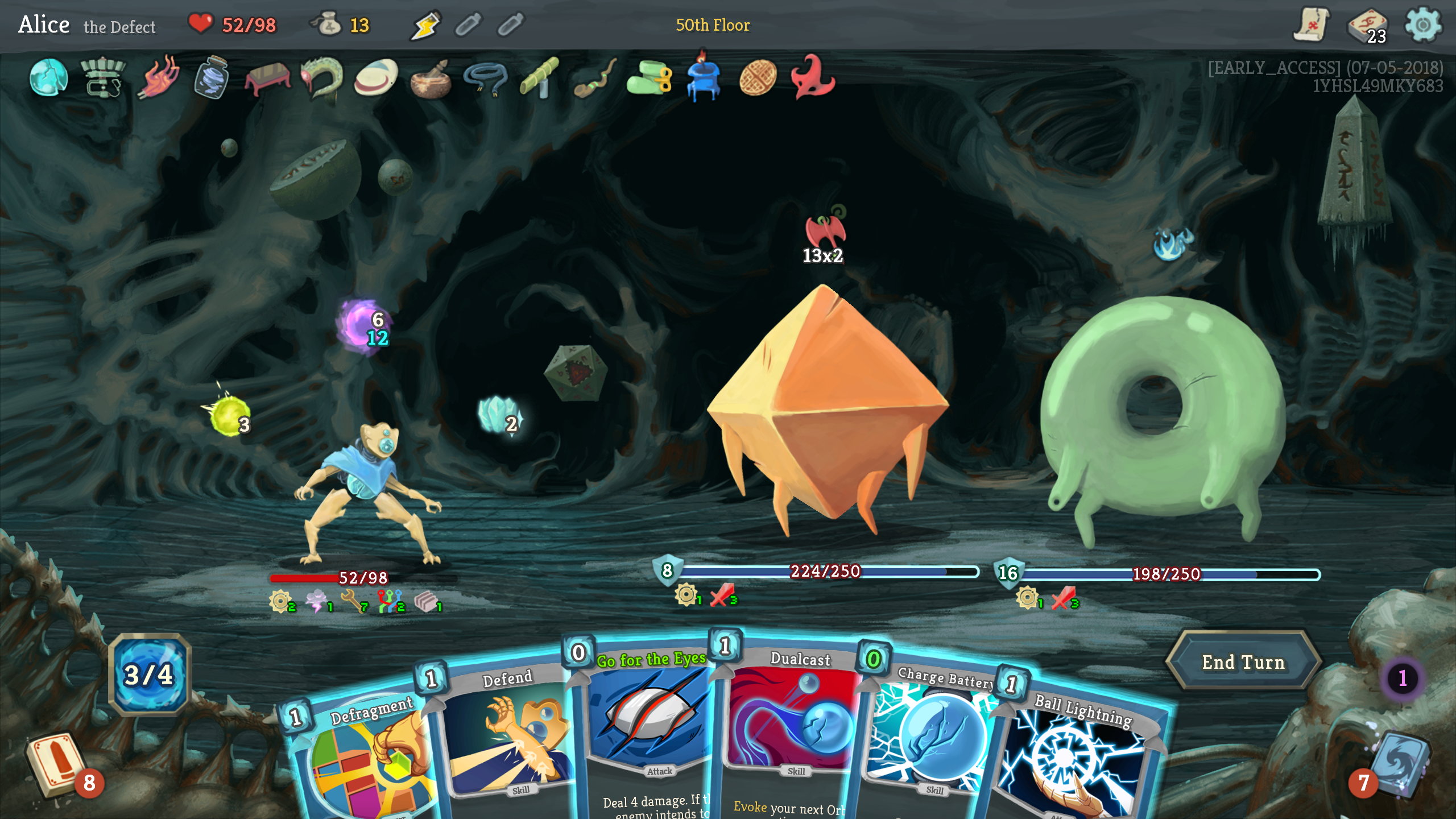The bestest and most top PC games of 2018 so far
The endless march of time
We're just about halfway through 2018 (which has somehow taken both too long and no time at all). As is tradition, we've shaken our our brains around to see which games from the last six months still make our neurons fizzle with delight. Then we wrote about them here, in this big list feature that you're reading right now this second.
And what games they are! 2018 has been a great year so far, and our top picks run the whole range, from hand drawn oddities made by one person, to big mega-studio blockbusters that took the work of hundreds. And each of them is special to us in some way. Just like you are too. Click through the arrows to see the full spread of our faves so far. Better luck next year to the games that didn't make the cut this time.
Into The Breach
Graham: Into The Breach's greatest idea is that it's a turn-based game about interrupting your opponent. At the start of each of your turns, you're shown what the enemy intends to do. A big beetle fellow is going to ram into a block of skyscrapers; a floating squid bloke is going to spit some acid at one of your three-mech squad; some other giant bug chap is going to burrow out of the ground to join the fray.
What follows is a tight, nothing-wasted turn-based tactics game on an 8x8 grid of life-or-death decision-making, in which a flawless victory always seems attainable and every pip of damage taken feels like a failure of your own intelligence. Because you can shove that big beetle fellow one grid square to the right so he charges into the sea, move your mech out of the floating squid's acid flight path, and find the right combination of moves and attacks to squish your opponent before they can even emerge from the earth. It's a game where everything is in your power, where you feel either oh-so-smart or justly proven to be the dimwit you (I, me) really are.
Add in hours of variety via the unlockable and customisable squads and in my mind, there are really only two candidates for 2018's best game. Into The Breach is one of them.
Subnautica
John: There’s something to be said for waiting for a game to be out of early access before you play it for the first time. While exploring Subnautica across its development would certainly have been a fascinating experience, I was so pleased I’d been disorganised enough to put off playing it for quite so long. Because the finished project (which is still growing and being added to in some ways) is such a sublime production.
It takes survival mechanisms and puts them into a story-first world of aquatic exploration, then has the enormous good sense to let you happen upon that story in your own time. If you want to spend absolutely ages just swimming about with the surface-level fishes, you’re good. If you want to dedicate your time to building an opulent underwater mansion, go for it. Or if you want to start uncovering the secrets of this alien planet, it’s all there to find.
Added to that, progress is incessantly rewarded with more of what it does best: amazing sea creatures with which to interact, run (swim) from, or collect. I was loving Subnautica when all I had were some flippers and hope, and I was loving it when I had a ridiculously complicated submarine that I’d somehow crafted from scrap metal and weeds. It’s a game that evolves alongside you, adapting itself to your greater abilities, expanding and deepening with more and more surprises. And it’s gentle, peaceful, and deeply intriguing.
Final Fantasy XV: Windows Edition
Brendan: Oh, hot wasteheap of fantasy nonsense, why can I not stop loving you? This road trip has a lot of flaws. The story is dumb, there are plotholes everywhere, the sidequests are rubbish, and even the car handles badly. It's style over substance in all the wrong ways, and the product placement somewhat undermines the allure of living in another world. It’s hard to believe you’re travelling through a fantastical kingdom far from your own plane of existence when one of the lads starts scoffing down a Cup Noodle. But if you can forget all that and appreciate Final Fantasy games for the glamourous idiocy they’ve always been, you’ll be fine.
I was a bit apathetic at the start of Noctis’s sunny stag do. But then a giant leviathan appeared and started bellowing disdainfully at a woman in a Vivienne Westwood wedding dress. “What does a lowly ephemeral speck know of all creation!?” it shouted. And that was it. I was definitely seeing it through to the end, and whatever godlike being I had to lovekill three times in a row.
Alice Bee: Style over substance indeed. But what a style! The absolute state of these lads. It's incredible to me that there was a meeting at Square Enix where somebody pitched the new Final Fantasy as "boy band's national tour goes awry; there is a magic dog you use to exchange pen pal letters; suddenly a giant tortoise". And that meeting definitely happened, with those words spoken. My Goodness.
BattleTech
Alec: Harebrained Schemes’ turn-based mech combat game has been something of an emotional rollercoaster for me. By which I mean it has triggered the only two emotional states I ever experience: “I don’t like this” and “I like this.” Its abundance of time-wasting in its animations and thinking time was anathema to someone who has a five-year-old clinging to their leg most of the live-long day, and also clashes with how poorly it explains itself. I.e. it took over a dozen hours of sitting through glacially slow wars of attrition before the penny fully dropped, and that was A BAD TIME.
On the other side of that, aided and abetted by mods that the killed the maddening down-time, was A GOOD TIME. A game I couldn’t stop playing, thrilling to the sadistic tensions of knee-capping and amputating giant death-machines with brutal efficiency. Lost in a delectable meta-game of collecting salvage to build new mechs from, of acquiring then jealously guarding rare weapons, of maxing out my pilots’ morale and abilities - and of transforming BattleTech from the aforementioned war of attrition into one of absolute mechanical might.
My head spins when I think about how a game that made my beat my fists against my desk in frustration gradually transformed into one that I just keep on going back to.
Yoku’s Island Express
Video Matthew: Yoku is a dung beetle who lives inside a giant pinball table, and his game makes it look like a pretty great lifestyle choice. Imagine it: never again would you have to walk up a slope, you just allow a flipper to bat you up. And why trek, sweatily, across town when you could ping from bumper to bumper, or coast along a metal rail to Aldi? Your ass would get raw from the relentless paddling, but it’s a small price to pay for the pursuit of laziness. I hope that one day my dream will be reality, but until then this excellent game will suffice.
It’s a platformer without a jump button, using pinball machinery to thump the hero around a vast jungle world. It’s one of those Metroid-y affairs, where item in cranny A opens the route to cranny B and you gain as much pleasure zooming out to the intricate world map as you do uncovering it. But it’s also a great pinball game, cleverly partitioning the world into self-contained tables where you’re collecting key parts, launching fruit into juicers or trying to calm a volcano with some multiball madness that’s slightly too fiddly to explain here.
Like a great pinball game it gives you the satisfaction of nailing those precision hits and lighting up icons until new, exciting table elements burst into life. But instead of asking you to pour hours into perfecting one, complex play area (something pinball fans love, but certainly isn’t for everyone), it whisks you to a new micro-table for a change of scenery and challenge. It’s pinball for the impatient, and platforming for the lazy. If you fit either category, you’ll probably dig this.
Octahedron
Dave Irwin: Octahedron was a long time in the making, first surfacing during EGX 2014. It went a long hiatus, but was back pumping its electronic vibes around EGX Rezzed 2017 and had me intrigued once more. Octahedron is a disco-y platformer where the main character can create a limited number of their own platforms underfoot. These are used to climb higher and higher in vertical levels that introduce new platform types, enemies, and concepts on a regular basis.
What's amazing is that despite its dazzling splendour, it's a remarkably simple game to just pick up and play. The levels are designed with a great deal of balance, and all the while the concepts are kept fresh and interesting. Some levels wrap around themselves, others teleport around the place, and there's even one where you have a ton of platforms to lay but no safe surface to touch down on until the bottom.
The Red Strings Club
Alice Bee: I am a curious little beast, because every time a game announces itself as being cyberpunk I think, sarcastically, to myself: wow, how original! And then when it comes out I play it and want to hook that good stuff into my actual veins. The Red Strings Club does more than your kind of bodies-as-a-commodity, squint-at-the-giant-adverts, low-life-but-high-neon standard take on Cyberpunk, though. It’s a puzzle game involving taking down a megacorp from within, and it will surprise you.
In The Red Strings Club, people are lying to each other, and remaking themselves and the world, and the ultra-rich megacorps are taking over, but it’s all being done by hand. It’s not automated by machines. You surgically implant things to change people’s personalities, but you craft them with a lathe, almost like a potter making a vase. You manipulate customers in a bar by mixing particular drinks for them, layering them up and using old fashioned shakers. You use a vocoder to trick people over the phone, but have to make the right calls and say the right things. It feels intimate. And, as you go, the game directly asks you questions about your morality and what you believe is right and wrong. And then asks you to think about the answer! To justify it beyond your gut reaction!
It also has a beautiful soundtrack (which you can buy separately from the game) that chimes in at different moments to stretch out that tension between old and new, super-rich and mega-poor, and between gleaming metal towers and pokey wooden basement bars. It feels more Blade Runner than 2049.
Matt: Alice has captured much of what makes The Red Strings Club the most interesting game of 2018 so far, but she hasn’t mentioned Akara. Akara’s an android tasked with jamming those personality-changing organs into CEOs: it’s automation Jim, but not as we know it. It’s an automation of morality, where ethics are offloaded into a thinking machine explicitly designed for the purpose.
The people in charge are still responsible for those decisions, but Akara plays a key part in moving the plot towards a world where they might no longer need to be. Akara’s the one who questions you, the one who picks apart the contradictions in your moral intuitions and makes a compelling case for actions you might instinctively find unconscionable. You should play The Red Strings Club for its conversational sleuthing, its ideas and its aesthetic. But mostly you should play it so you can chat with Akara.
Frostpunk
Alec: Management games are traditionally about indulgence. I’m so impressed by how Frostpunk manages to invert that and transform city-building from an aspirational activity into one of strife and sacrifice, but without collapsing into misery porn in the process. It makes its decisions - both the pop-quiz moral dilemmas and the ongoing agonies of diverting resources from one vital cause to another - so acute that there’s no time to wallow. People are depending on you. You’ve got a job to do. Stop moping and damn well do it.
Sure, it’s a game you can eventually learn to ‘beat’, but Frostpunk’s mood of simmering worry, that sense that the wolf is forever at the door, has not left me.
Chuchel
John: Amanita have been making adorable games for many years, and you’d have to be a pretty silly person not to have enjoyed at least one of them: Machinarium, Botanicula, Samorost... Really beautifully crafted point-and-clickers, like nothing else out there. And then this year brought us Chuchel - a game that embraced all the exploratory clicking that made Amanita games so special, but developed it into a series of shorts, individual episodes that felt inspired by cartoons of the early 20th century, but delivered as wildly animated mini-puzzles.
And most of all, it’s hilarious. Laugh-out-loud brilliance, that saw guffaws spanning the 37 year age gap between me and my son. Joyfully drawn and animated, it’s as funny and fun to get puzzles wrong as it is right, as you guide the poor unfortunate Chuchel along his guide to just get his hands on that damned cherry.
I couldn’t believe how many puzzles they put in this, each as lovely or funny or surprising as the last. It is just utterly joyous and daft and ridiculous, making me laugh more than any other game I can think of.
Video Matthew: I like the bit where the thing wants to eat the cherry and then the cherry becomes a bomb and blows the thing's face onto the back of its head.
Paratopic
Alice O: The stories of an assassin, a hiker, and a courier carrying deadly videotapes intertwine in this surreal vignette-driven horror game. That's horror in the sense of "Ah, this unnerving feeling will hang with me for a while" rather than "Oh no a scary monster shouted at me."
The world of Paratopic is similar enough to ours to feel familiar, different enough to feel wrong. Yet it's a pleasant place to see more of, talking about landmarks with a petrol station attendant, wandering the woods, and driving slowly out of the quiet city and into the wilderness.
I like its vignette structure. Unlike Thirty Flights Of Loving with its mega-fast cuts or the clear goals of Virginia, it often drifts lazily through long sections, sitting with stories and places for a long time. I often had no idea what might be next. And I really do like its driving sections, listening to the garbled radio as I trundle along. The Quake/PlayStation-era 3D is a strong look too, especially when coupled with anachronistic minute interactions like stubbing out a cigarette or picking up individual bullets.
The longer Paratopic sits in my memory, the more it shares nods of mutual respect with Killer7 sitting on the opposite lobe. They're wildly different and I have no idea if Killer7 was anywhere in the developers’ minds but ah, I swear I see the two games winking and making kissy faces. I like that.
Ni no Kuni II: Revenant Kingdom
Dave Irwin: While the first game still nudges the top spot for me, the time I spent with Ni no Kuni II: Revenant Kingdom was a joy. Was it painfully easy at times? Yes, absolutely, especially compared to the grind that was the PlayStation 3 must-have. But in its different direction came an RPG that wasn't afraid to let me see everything it had to offer. I could build Evan's kingdom to be the best kingdom in the world with all the best stuff. I could have the party take on all the big bounties.
All the while it told the story of a young child growing into his duty. He made mistakes, but he learned from them what it means to be a true leader. Having a mentor of Roland's calibre not only taught Evan how to be a king, but also Roland a bit more about how he can change too. I'd still like the first game to come to PC one day, but this was a remarkably pretty game that showed that good storytelling that kids can get behind can ensnare the older audience too.
Legendary Gary
Alice Bee: Legendary Gary is about a man called Gary who isn’t legendary. He’s just a dude. He lives in his mother’s basement and works a minimum wage job, and he feels like his life has stalled. His girlfriend and best friend feel similar things. By day Gary goes to work, and waters plants in his front garden, but by night he plays Legend of the Spear, an RPG that was mysteriously delivered to him. As Gary you have to do the boring and sad bits of his regular life, and the exciting fantasy bits where he’s a hero. Legend of the Spear involves combat, but it plays out turn by turn and is more of a puzzle than anything else. And then the two worlds start to bleed together.
Gary receives flowers in Legend of the Spear that he can grow in his actual garden. Answers to riddles in the game are found in Gary’s job in real life. Characters in Legend of the Spear correspond to relationships he has with his friends and family. It’s possible to get different conclusions to Gary’s real life story based on how you manage what happens in Legend of the Spear, as well as conversations Gary has in reality. It’s a careful story that’s carefully drawn, and a bit sad, and I liked it a lot.
Far Cry 5
Graham: Did I love Far Cry 5? Goodness, no. Including Primal, it is by my count the fifth best Far Cry game. But this creaking and dulled formula can still get its hooks into me.
It's the outposts that do it, the little towns filled with enemies that scatter the Ubimap and sit separate from each Far Cry game's storyline. They're the clearest expression of the series' original combat-bubble ethos, providing you ample opportunities for scouting what's ahead of you (a charger-type enemy, two melee guys, a flamethrower guy, two snipers, an alarm, a bear in a cage), and for making your plan for how to deal with it (using the bow and arrow; nothing else truly matters).
I've heard other people say that Far Cry 5's outposts are better than ever, but I can't agree with that because too me all outposts are the same. If there's any variety to them I'll steadfastly ignore it in favour of the same pattern of sneaking, alarm-disabling and arrow-based headshots. Instead I'll say: Far Cry 5's outposts are as good as they always are, and as excellent when tackled cooperatively as they were in Far Cry 4.
Alice Bee: Far Cry 5 does the most important job any game can ever do, which is to have a dog and then allow you to pet that dog (do not feature a dog in your game if that is not an option, you monsters). Press X to tell Boomer he's a good boy. When I played a demo of it the helpful-demo-friend developer laughed at me because I kept turning around to make sure Boomer hadn't gotten lost.
Celeste
Graham: Platformers are hard to come by, these days. No, hear me out. I'll often go hunting for something to satisfying my thirst for jumping only to come away with a collection of games that include jumping, but which are really about rotating levels, rewinding time, colour-swapping between mirror universes or metroidvaning your way to new areas. Celeste is none of those things: it's just a really good game about jumping.
Jumping to get from platform A to platform B. Jumping and then air-dashing to extend the jump's distance. Jumping and then, yeah, barging through some starry portal-walls in order to extend the length of your dash indefinitely, because while Celeste is about developing your skills and finesse at using its very simple moveset, it challenges you by introducing new obstacles and opportunities in each level. It's inventive and surprising, and held together well by a light-touch story and fun characters.
But it's still, ultimately, about the really good jumping. If you have a Super Meat Boy itch to scratch, Celeste will scratch it - and with great accessibility options for making the game easier to boot.
Alice Bee: Hey kids [I have turned my chair around to sit on it backwards, all cool like]. Another neato thing is that Celeste is also one of an increasing number of games that are about mental health, and most of the reviews mentioned this aspect of it. The mountain Celeste is trying to climb is, it turns out, a metaphor. There are points where Madeline, the protagonist, has her struggle with anxiety and depression made quite explicit, but not patronisingly so. I think it's cool that games are engaging with tough subjects, even if they make mistakes doing so, because that's how we learn - but for Celeste it wasn't a mistake, and was a point that people really connected with.
Surviving Mars
Alec: I wouldn’t have stuck the launch version of Haemimont’s Martian colony city-builder in here, but they’ve handled it with care over the past quarter-year. Preposterous oversights, such as the lack of connecting tunnels between domes, have been corrected, a bitty interface that needlessly devoured time and screenspace has been improved, and all told the game’s much more open to gentle experimentation than it was. Surviving Mars laid the foundations of greatness, but it’s only recently that it’s truly begun to build something atop them. I have great faith that, come the year’s end, I’ll be able to take my pick of ways to make hundreds of people die a horrible, airless, arid death, countless miles from home. Hooray!
Dragon Ball FighterZ
Dave Irwin: For those whose formative years were in the late 90s to early 2000s, Dragon Ball Z has a special place as the manga that changed everything. The internet, in its early days, had a lot of usernames based on the likes of Vegeta, Trunks, and Broly. While the manga and anime were amazing, there was never a truly good game associated with the series. It took decades, but this year finally saw a developer who knew fighting games inside and out do what others couldn't.
Dragon Ball FighterZ has a bloated story mode like most anime fighting games not following their original narrative, but it more than makes up for it with fluid combat that's crazy to look at, yet easy to learn. The roster encompasses the old manga and newer stories that have surfaced since, but it's how those characters interact when certain conditions are met that makes it. I'll never forget seeing the moment Frieza blows up Krillin and Goku turns Super Saiyan, being created in-engine, before the fight between Goku and Frieza even begins on Namek! It sent shivers down my spine.
Alice Bee: I grew up in the late 90s to early 2000s but didn't read or watch DBZ. I understood almost none of what Dave said, there. But it is a tribute to Dragon Ball FighterZ that I, who has trouble telling these characters apart because a lot of them have the same outfit and haircut, still thought this was a smashing game. It's not a massively technical fighter, but it is very fun and beautifully over the top. Plus the magnitude of the punches these fighters do lends itself to you adding your own excellent commentary: AS GOD IS MAH WITNESS, THAT MAN IN THE ORANGE GI SUIT IS BROKEN IN HALF!!!
The Council
Video Matthew: Including an episodic adventure before it has run its course is a risky move, but I’ve enjoyed my time with the The Council enough to gamble on it. At first glance it’s another Telltale wannabe, full of branching story paths and characters who’ll bear a grudge if you say the wrong thing. But with your reputation hinging on the art of conversation it takes those crucial chats and evolves them into an almost RPG-ish battle system.
You have a pool of effort points that can be spent to push dialogue into specialist areas where you have the upper hand. You might ensnare someone with logic, or use your knowledge of politics to correct an error they’ve made, for example. Each character has verbal approaches they’re more or less vulnerable to, and a part of the fun is sniffing out these personal tastes in order to cut them down when you face them in formal confrontations.
For any of this to happen you need to unlock areas of specialist knowledge in a skill tree, and I love idea of building a character around what he knows, rather than what he can specifically do. There are moments in the game where you have to sit there like a lemon and watch the grown-ups talk because you didn’t invest your wisdom in the relevant topic, which feels true to real life. If nothing else, The Council is a surprisingly good pub chat/dinner party/talking to my in-laws simulator.
Slay The Spire
Alice O: Twist! Bust! Snap! Poke! The true measure of any card game is how much players verbally gesture while playing. I mutter and coo to myself a whole lot while playing Slay The Spire, my internal monologue spilling out my face as I build decks and bash monsters in this roguelikelike dungeon crawler. As Tom Francis wrote about, its sums are simple but satisfying.
Even in its early access, Slay The Spire is the game I’ve played most this year. Several times, I thought I was about ready to step back until the full release then developers Mega Crit added something to draw me deeper in. I now play the daily run every afternoon, enjoying the strange opportunities and hazards thrown up by a random selection of game-warping modifiers. And when I’m struggling to focus, I will fire up Spire for a quick Defect run to get my thoughts in order by crunching numbers and muttering “Zap!”
Oh, I adore the Defect. Slay The Spire’s first two characters are fairly recognisable as rogue and warrior classes, armed with clever tricks and big sticks. The Defect, added in June, is... I’d initially read the Defect as a wizard, a robot conjuring and zorping orbs without laying a finger on an enemy. But the Defect is also a vicious wee murderbot, raking its metal claws in frenzied attacks which can combine with wiztricks for monstrous combos. Even its wizardry has plenty of subtlety, and I’m still mastering tricks after dozens of runs. They’re the only character I play these days.
The fact that I talk about the Defect’s wizardry and fistmurder as if they’re quite separate, rather than slightly different ways for maths to happen, speaks to Slay The Spire’s strong theming. NPC encounters are strange and pleasing, and card names and art bring characters to life so well. The Ironclad, a cursed warrior whose demon-tainted blood can warp him into unholy strength. The Silent, a huntress who rolls and flips across the battlefield, flinging poisonous vials and endless daggers from the depths of her cloak. And the Defect, my dear sweet murderwiz who has no delusions of grandeur or style and will shred you with their hands if it’s the most efficient way. What a lovely little robot.
Graham: Slay The Spire is the other candidate for the best game of 2018.
Matt: Slay The Spire sucks up far too much of my time for me to call it the best game of 2018. But it is.
